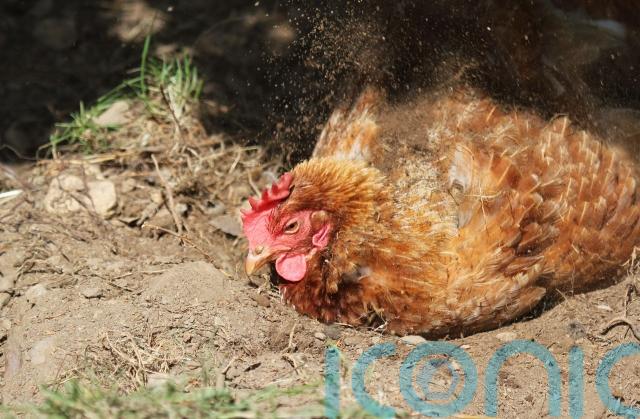
While many children grow up with a cat or a dog, Arthur Parkinson grew up with chickens.
As a child growing up in an ex-mining town in Nottinghamshire, kids in the playground called him ‘Chicken Boy’ – and now, his eponymous memoir explores how keeping hens has been his sanctuary.
It also delves into what others might want to know if they’re keen to keep chickens of their own.
“I was obsessed with hens from being little and went to the library, just as you would if you were starting a new garden from scratch. ”
Here, Parkinson offers advice for beginners who want to keep chickens in their garden (owners and potential owners should be aware of the ‘flockdown’ restrictions currently in place because of bird flu).
You need space
“Ideally, each hen needs 10 square metres. A pair of birds will need a fairly substantial run. Imagine the space a fruit cage would take up. That’s the kind of space a hen run will take up in your garden or allotment,” says Parkinson.
“You could get away with 20 square metres for three birds who are going to lay (eggs) over the spring and summer months.”
Chicken runs currently need to be covered with netting or clear plastic sheeting to protect them from wild bird droppings, and make them bio-secure to guard against bird flu.
Ideally, place the run/coop near plants and try to place it in a sheltered spot in the sun, as hens don’t like to be exposed to wind or rain either, Parkinson suggests.
They are companions
“They’re not just going to sit there and lay you an egg every day, they’ve got personalities. A lot of people that get chickens are just thinking about eggs, but the eggs are secondary,” he adds.
Where do you buy them?
“If you want the lovely coloured eggs in dark brown and blue, Legbars of Broadway supply the Burford Browns at about 16 weeks old before they start to lay, which is a good age to settle in.”
Chickens To Your Door also delivers nationwide. A pure breed will cost around £40 each, he estimates. “Read up on your breeds and think about what you want them for. Do you want them as pets or producers?”
What do you feed them?
How many eggs can you expect?
You don’t need a cockerel for eggs
“They are not necessary for egg production. The hens will lay without one. The only thing you need to do is put a dummy egg in the nesting box, because without a cockerel they often don’t know where they should lay their eggs.”
A cockerel will often go in the nesting box and he’ll cluck and encourage them to lay their eggs in the box, he explains.
How do you keep them clean?

Make sure they can have a dust bath in dry soil every day, he suggests. “Most chickens leave their droppings at night under the perches, and a lot of people just put newspaper under that, that they can take out every couple of days and put on to the compost heap.
“Nesting boxes need to be filled with chopped straw. I buy the straw that sells for horses that’s treated with eucalyptus, because it smells nice. I clean the area under the perches every day and the rest of the henhouse gets cleaned out once a week to a fortnight.”
Check bird flu restrictions
Anyone keeping chickens or considering doing so should be aware that proposals to require all poultry keepers to officially register their birds were launched by the government recently as part of efforts to tackle bird flu.
Details of current restrictions can be found at The British Hen Welfare Trust
Chicken Boy by Arthur Parkinson is published by Particular Books on April 6, priced, £22.
Subscribe or register today to discover more from DonegalLive.ie
Buy the e-paper of the Donegal Democrat, Donegal People's Press, Donegal Post and Inish Times here for instant access to Donegal's premier news titles.
Keep up with the latest news from Donegal with our daily newsletter featuring the most important stories of the day delivered to your inbox every evening at 5pm.